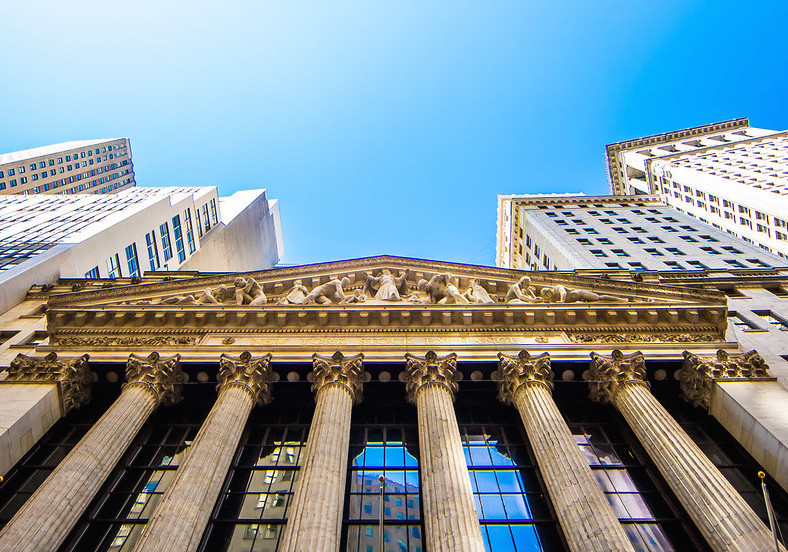Markets of any kind require credit. To sell a product such as wheat, you need resources to produce it first. That is where banks or credit unions come in: they advance the funds needed to get a crop to market.
Credit — not money — makes the world go round.
Banks or credit unions will lend to individuals, families, businesses, governments, NGOs or other entities, providing they appear credit worthy and, preferably, have assets for collateral.
What makes markets markets is credit — plus the opportunity to make some money. Farmers grow wheat, hoping to sell their production for more than it cost to deliver the crop to buyers or at least to recoup their costs.
Sales of goods and services are taxed. In Canada people routinely pay five per cent goods and services tax (GST) plus a provincial sales tax or both taxes combined in the harmonized sales tax (HST).
The biggest markets are for monetary assets and currency. In the first half of 2020 the Bank for International Settlements (BIS) estimated the gross market value for over-the-counter derivatives (OTC) to be US$15.5 trillion. Derivatives are contracts based (or derived) on the value of an underlying asset. OTC are subject to the risk one party will default; they are unregulated, and free of tax.
According to the BIS, in 2019 US$6.6 trillion was traded on world foreign exchange (FX) markets every day as people exchange their local currencies for U.S. dollars, euros, or, increasingly, the Chinese yuan.
Decades ago the late James Tobin, a Yale University economist, suggested that all FX transactions should be subject to a small tax, with the proceeds used to fund international development through the United Nations.
Just as banks collect trading fees on FX purchases, so could governments collect taxes on the same transaction. Applying such an FX tax requires only that governments agree to do it, which they have been unwilling to do.
Virtually every country has a bond market where large entities can raise money on their own credit. Credit power allows borrowers to employ securities dealers to connect them with lenders.
Governments, financial institutions, and corporations issue bonds which are held as assets, in pension funds for instance, or as an interest-bearing substitute for holding cash.
In 2018 the world bond market totalled US$102.8 trillion and the total for outstanding equities on world markets reached US$74.7 trillion.
There is no sales tax on stocks or bonds in Canada. Financial holdings are subject to capital gains taxes. Many jurisdictions, but not Canada, collect inheritance taxes.
Despite ballooning wealth inequalities, there are no taxes on total wealth in Canada.
Financial transactions taxes are levied in 30 countries, including France, Sweden, Belgium, Japan, and the U.K. With such a tax in place, when you buy a bond or when you purchase corporate shares in the equity market, small taxes are levied on top of the usual brokerage or banking fees.
Last week, a rag-tag band of buyers caused two Wall Street hedge funds to lose billions of dollars betting the common stock of a video game company, GameStop, was going to plummet.
A crowd from the #WallStreetBuyers subset of the internet giant Reddit went on a buying spree that forced the hedge funds — which had been selling borrowed stock to buy it back later at a lower price — to replace the borrowed stock at a higher price and take tremendous losses.
As “short sellers,” the hedge funds were only interested in using money to make money.
Wall Street’s dirty little secret is that stock-market players do not use their own money. They borrow it instead from money-printing machines: big banks.
Hedge-fund transactions are funded by the U.S. banking system, itself subsidized by the U.S. central bank, the Federal Reserve (the Fed).
The Fed has been buying bonds in humongous quantities, thereby injecting funds into the accounts of the bond sellers, mainly financial institutions, and keeping interest rates at record lows.
Low interest rates have served to pump up stock and bond prices, as well as other asset prices, making market speculation less costly and more attractive.
The sums of money being wagered on Wall Street are money to make more money, nothing more.
Introducing a financial transaction tax — making speculators pay taxes — needs to be high on the agenda of those concerned with inequality. In the U.S. about 85 per cent of outstanding corporate stock is held by the top 10 per cent of income earners.
In his famous General Theory published in 1936, John Maynard Keynes proposed a financial transactions tax to curb speculation: “When the capital development of a country becomes a by-product of the activities of a casino, the job is likely to be ill-done.”
Duncan Cameron is president emeritus of rabble.ca and writes a weekly column on politics and current affairs.
Image credit: Thomas Hawk/Flickr



